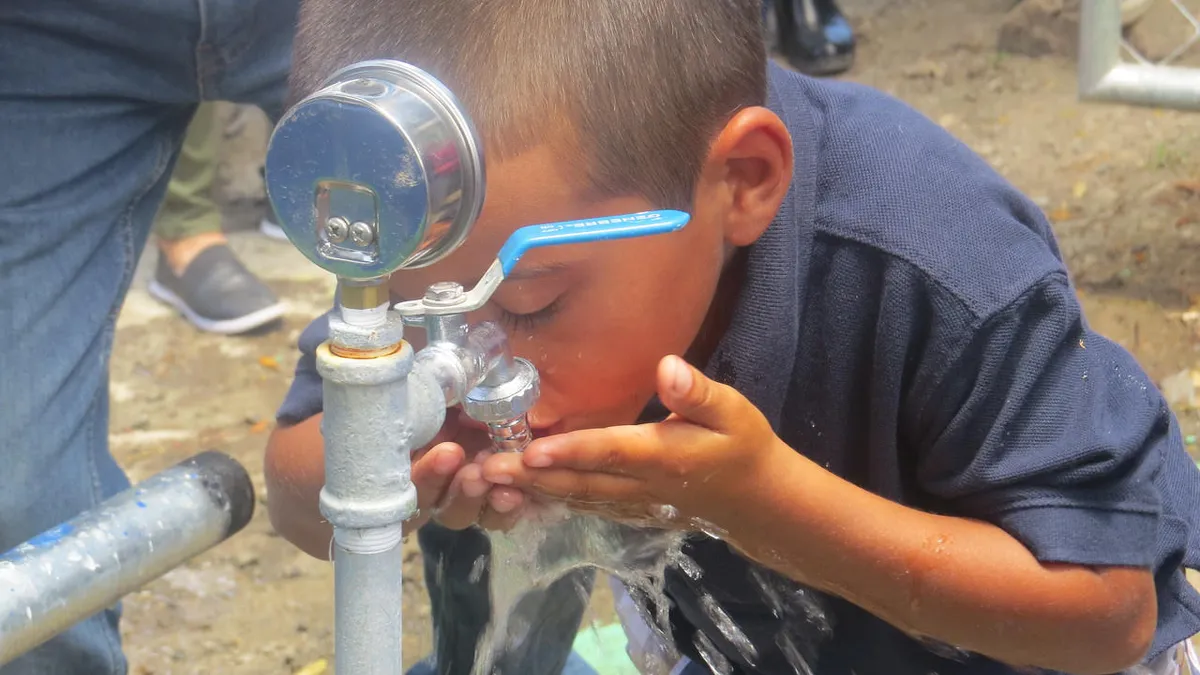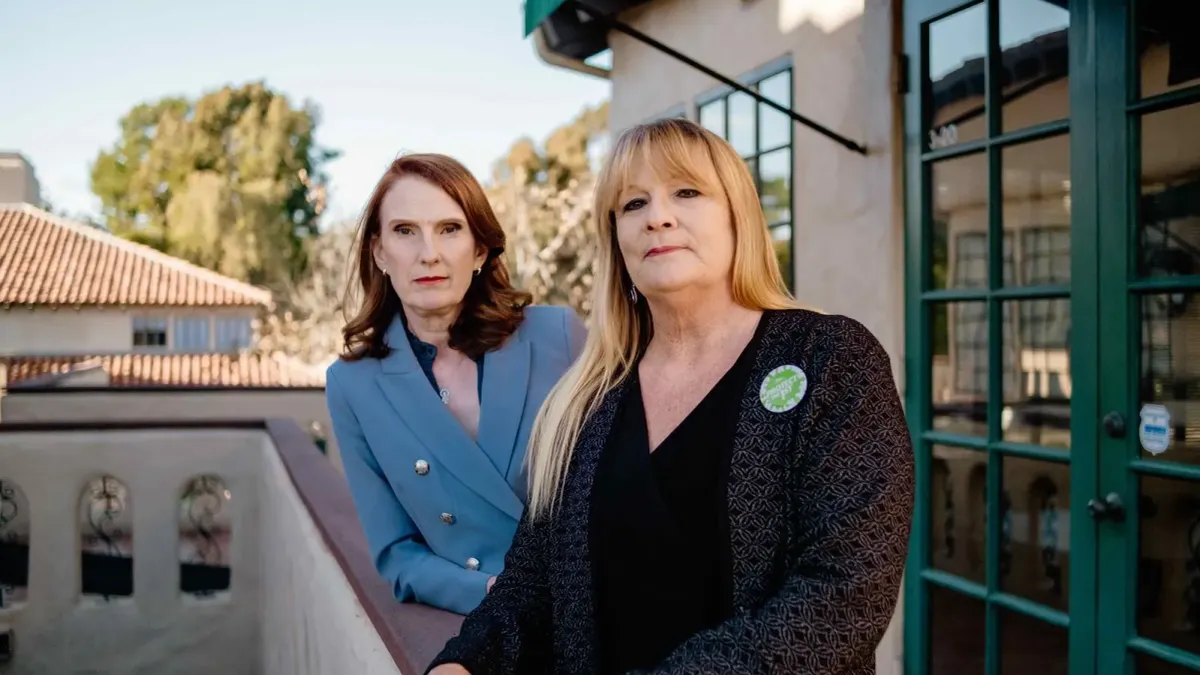When administrators at Liberty High School in Liberty, Missouri, wanted to expand global education at the 2,000-student school, they went all in by creating a microschool called Empowering Discovery of the Global Experience, or the EDGE.
Principal April Adams and Assistant Principal Sara Wickham helped design the program and get district support to convert a wing of the school for the classes, which use the United Nations’ Sustainable Development Goals as a foundation for learning.
With the EDGE’s globally focused curriculum set to complement the school’s core academic standards-based lessons, the program launched this school year with 110 students. But when planning for this inaugural class, Adams and Wickham knew one thing was missing — the practical, hands-on experience of working directly with international communities.
Through a little bit of research, Wickham found the nonprofit Global Brigades program, which connects high school and college students with projects addressing real-life challenges in healthcare, water supplies and economic development in a variety of countries across the world.
For its first project, 13 EDGE students are working on a community development program in Honduras. Although the students just recently got started and are still determining what the specifics of their project will be, Wickham and Adams said they’ve already seen benefits from the virtual connections students are making with project leaders in Honduras.
“With what our students have explained, with what their experience has been and how excited they are to be able to have the international connection even though we're grounded during the pandemic, to me it's just so fantastic,” said Adams. “That's what school is about. It's about getting that spark back into learning.”
Foreign visits move online
Global Brigades leaders actually never really planned for students to participate in the international projects virtually. Traditionally, student volunteers traveled to the communities they were helping and would spend several days doing the labor to make the improvements they designed with local leaders.
But when the pandemic shut down international travel, Global Brigades realized that, with a few virtual logistics, it could actually expand access to the projects for middle and high school students who may not have the money or opportunity to travel to a foreign country, said Erik Werner, co-founder and president of Squads Abroad, the high school division of Global Brigades.
After quickly pivoting to continue projects already in the planning stages, as well as launching new projects, participation grew from 400 students annually before the pandemic to 1,500 students, said Werner.
He said part of Global Brigades’ appeal for educators is the project-based learning aspect of the community improvements, which challenge students to understand local residents’ needs and capacities. In addition, students use math and science-based problem-solving to help find solutions to problems like building a safe water storage tank for a school.
Global Brigades facilitators are located in the five countries receiving support and help teachers and students manage the projects. Schools can customize their project based on scheduling and curriculum needs.
There is a per-student charge for the program, which depends on the type of project, the number of student participants and the duration of the online sessions with the in-country facilitators. Costs can start at around $200 per student, according to Global Brigades founder Shital Vora.
Some schools have received grants or held fundraisers to cover participation costs, said Werner. Liberty High School, for example, got a grant from the Ewing Marion Kauffman Foundation for this year’s project and will plan for the cost in next school year’s budget, Adams said.
'It connects the head and heart'
Vora founded Global Brigades in 2003 with the aim to provide an international immersion experience to students, as well as help communities carry out improvement projects that will allow them to be more self-sustainable.
“These programs have a transformational impact on the students themselves,” Vora said. “They then know that they have the power to make meaningful change in the world, which is very empowering for them.”
In the summer of 2020, Martha Keeley, an engineering teacher at John Burroughs School, a private school in St. Louis, Missouri, was looking for real-world, project-based lessons on fluid dynamics that would excite her virtual and in-person students when she came across an email she had left previously left unread. It was about the Global Brigades program, and she quickly got in touch with Werner and discussed her students' potential involvement.
Keeley said she applied the class' unused lab funds — about $2,400 — toward the Global Brigades project. The class helped build a surge water tank system for a school in Panama that was running out of water early in the school day, forcing teachers there to suspend classes.
While Keeley’s students were learning from their teacher’s planned lessons, they were also collaborating with the facilitator in Panama via Zoom on what was needed to solve the school’s water challenges.
“It was really the project that was driving the curriculum of the class, which was really great,” Keeley said.
Discussions centered on water quality, supply chain problems for materials, predicting the community’s future population, design of the storage tank and platform, aesthetics of the tank, funding and many more details. The students also conducted fundraising campaigns to help pay for the water tank, which was fully operational by May.
Additionally, the project led Keeley to learn a valuable lesson. “I've never had to be quite as nimble as a teacher, but I've also never been as excited and as inspired as a teacher,” she said. “It's given me a much higher bar in terms of student impacts in the real world, and what can be accomplished at the high school level.”
Adams, the Liberty High School principal, said the Global Brigades project is having a positive impact on teachers and students. “It connects the head and the heart, and so, you know, that's a game-changer for a lot of people. And sometimes when they have these experiences, it defines the path of what they want to do for the rest of their life when they can see that they've contributed to making the world a better place," she said.


















